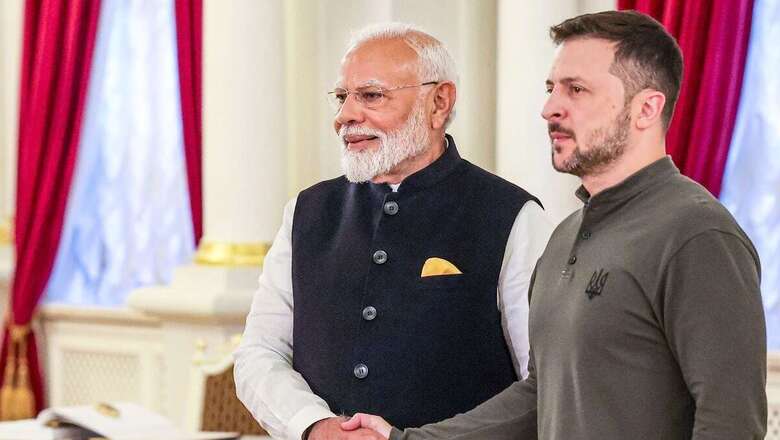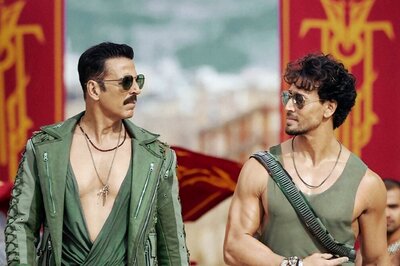
views
Narendra Modi’s first priority in foreign policy after becoming the prime minister for the third time is to achieve peace in Europe. While Ukrainian President Volodymyr Zelenskyy and western geopolitical experts have criticised Modi for putting national interest over humanity and buying cheap energy for his country, he has been silently doing some groundwork by first visiting Russia and then Austria.
The prime minister has held talks with Putin over the war in Europe. He has discussed India’s point of view in Austria, which is a member of the European Union but not NATO. When he returned from his Russia-Austria visit, he made global headlines for hugging Putin even after mentioning children’s deaths while sitting next to him. Western critics were struck by the handshakes and hugs exchanged between the two leaders.
In about a month’s time, Modi decided to go to Ukraine. This time, he was again criticised for doing it under US pressure to balance out his visit to Moscow. He went to Poland, discussed the Russia-Ukraine conflict on priority with his Polish counterparts and then travelled to Ukraine.
He and Zelenskyy held extensive talks about the ongoing war. He shared the viewpoint of Russia and India with Ukraine during a three-hour period. Following this, Zelenskyy held a press conference expressing his dissatisfaction with India’s position.
His remarks were not positive despite the PM’s visit. He told journalists: “If India changes its attitude towards Russia, the war will end.” He indirectly blamed India, even as the country once again opted for silence and kept working on the peace mission.
Many viewed Modi’s visit as a formality to keep the western bloc happy. But, contrary to this, his true commitment stood out when he called US President Joe Biden to brief him about his visit followed by a telephonic conversation with Putin.
In that phone call, he discussed his visit to Ukraine and offered that National Security Adviser (NSA) Ajit Doval should visit Russia and discuss ideas related to peace after his Kyiv visit. In the follow-up to this call, Doval now be travelling to Moscow to discuss peace restoration on September 10 and 11, and also be taking part in the BRICS-NSA meeting, where he is likely to meet his Chinese counterpart ahead of the summit in Kazan in October.
Modi has always stated India’s position by saying it is on the side of peace. He strategically planned to do complete groundwork before intensifying peace talks. In fact, India has acted commendably with his back-to-back visits to Europe in addition to all the bilateral meetings held with Zelenskyy on the sidelines of the G7 summit in Japan and Italy.
Modi was the first leader to tell Putin that “this is not an era of war”, when the two leaders met on the sidelines of Samarkand in 2022. He met Putin again in July 2024 and told him “solutions cannot be found on battlefield”.
Now, since he has decided to expedite the peace talks, he is sending Doval to discuss possible resolutions to the conflict. His efforts are being recognised by both Russia and Italy.
Putin named India along with China and Brazil in proving to be a “helping hand” in trying to resolve the ongoing conflict. Now, Italian Prime Minister Giorgia Meloni has also shown confidence in Modi to end the Russia-Ukraine conflcit.
Modi’s growing credibility can be linked to his active participation in creating and continuing a diplomatic dialogue between all crucial stakeholders whose consensus is important to make Europe peaceful and stable again. The world finally seems to be acknowledging and appreciating his far-sighted thinking and action showcasing India’s stand on world peace.



















Comments
0 comment